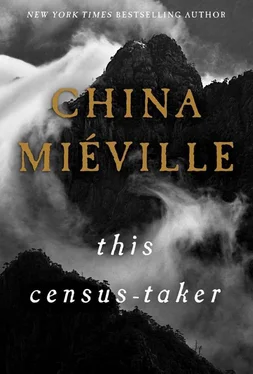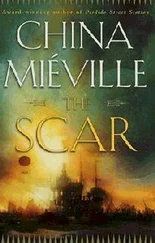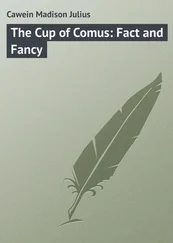“He’s somewhere,” I said. I wanted to say more but neither of us knew what so we shared a sad silence.
When he looked into the sky at last and I could see him prepare to leave, the boy told me, “Samma’s been saying. You hear people talking about your dad.” I didn’t move. “They’re all angry with what he done. What you said. Then after a bit you hear them talking about the keys he did for them. What they do. Like…” He cast about for an example. “Like it changes the weather, one woman says.” He inclined his head eagerly. “Samma said we might take it from her — the key I mean — and see if it does.
“I mean I wouldn’t buy it,” he said quickly, “I wouldn’t give him any money for anything now, but if we could get a key like that…Well, I mean, changing the weather. Or anything.” He looked at me cautiously and shrugged as if surely I must see. “I mean, that’s something?”
I’d never used any of my father’s keys.
The boy waited but I wouldn’t speak. I didn’t suggest he stay out of sight while I crept inside to see what I could find or that I’d leave the workroom window unlocked for him that night to climb in through. I wouldn’t look at him. I said nothing about the keys at all. Eventually he went.
Sometimes when my father walked on the hills I’d stand in the entrance to his workroom and smell metal dust and oil and see some half-finished shape in his vise.
I don’t know when his customers started to come back. At first I didn’t see them, only heard voices in his room. First a man, then later a woman, explaining what they needed the metal to do. Then I’d hear the rasp of my father working.
We acquired two goats. One cold morning I woke to their urgent bleating. They were chained by the front door frantically eating gorse and butting each other. My father smiled at me and said, “These are yours.”
They were young she-goats, frenetic and boisterous, and I loved them utterly and was terrified for them. I’d follow their famished, curious investigations of the slopes, the fervor with which they went for weeds, nosed aside a few fallen scarers my parents had made. I tried to keep them away from the dying garden with which I still struggled, a custodian of its decline. Whenever my father looked at them, I felt sick.
“What are they called?” he said to me.
I shrugged.
“Why won’t you name them?” He was sad.
I did name them, but with fleeting, random syllables, which I changed every two or three days, and which I never told him, as if that might keep them safe.
They ate dead leaves; they ate gnarly barky bushes. They grazed on bedraggled refuse I pulled up from the vegetable patches, and on clots of moss in the corners of our walls.
—
On the hill we used a different, vaguer calendar than the one I’ve since learned. The seasons ours described — summer, dimming, and winter — were suited to a different place: the mountain had two seasons at most. What we used was an inheritance, I think, a throwback from somewhere more changeable. It did grow colder in the top room. It was weeks after I’d run away, after the goats came, but I don’t know exactly how long, before my father killed again, unless he hid other such killings from me.
I stood in the remnants of the garden on an evening full of sunlight lingering on the slopes, and below the raucous goat complaining I became aware of another growing beat. My insides clenched.
My father’s window glowed against the creeping dark. He huddled within, bent by the sill. He was the color of the dirt on the window. His hand was rising and falling in that deadening drumming, and I saw something limp and flailing snapping back and forth in his grip. There was no more killing purpose to his continued pounding.
I don’t know what it was. He held the animal by the ears and punched it again and again into the ruined floor and made its body a sack of blood. I was sluiced through with a sort of bilious terror but I wasn’t surprised.
Nor did I hide. I just stood by the glass and watched and whimpered.
When he was done breaking the animal (I don’t know how he’d caught it, I don’t know what it had done, I don’t know why he took it back into the house to do it or if it was dead when he did) my father stood, holding the dripping skin. It was properly dark now and he stood in front of his window with the light behind him so he was a black form to me, a shadow man, and I couldn’t see his expression, but I knew which one it was.
He certainly saw me but he looked at me no longer than he did at anything else before he left the room and I heard the front door open and I ran to keep the house between us and he went to fill the hole in the hill alone.
—
Once during the goats’ vigorous evening meal my father leaned out and looked at me and said calmly, “Quiet them, please. Will you take them somewhere else, please?”
Whenever he spoke directly to me I was pinned in place. I made myself stumble forward pulling at the goats’ leads and they complained and went stiff-legged so I had to lean against them while my father watched. I strained. I saw past him to a man in his room.
Maybe I recognized him from the town, though it was weeks since I’d been there. I thought maybe he’d been at a pump, or hauling sacks of stone across the bridge, for workshops. For an instant, looking at the bulk of him, I thought he was the hunter, but he wasn’t. He waited for my father to return to their conversation. On the table between them was a half-finished drawing of a key.
—
Are the keys waiting for you? I didn’t want to ask my father but I wanted him to tell me. Do you make them out of nothing or do you find their edges?
He used scrap. He used beaten-flat metal panels, which he’d heat and into which he’d sometimes hammer fetish scobs. He used the blackened bottoms of saucepans: those he liked because they were flat and thin already.
So was there a key waiting for him to cut it out of un-key metal? I liked the thought of it but I never did trust my own hankerings.
When I saw them from that time on, some of his customers wore ugly expressions or put them on when they saw me, to illustrate how much they disapproved of my father, how much distaste they had for him.
—
One hazy cold morning he told me to play and to be safe and to wait. He put empty bags over his shoulders and I heard the coins in his hands and he set out to the town again, for the first time since he had come to fetch me from the police.
“If anyone comes while I’m gone,” he called back, “tell them to wait outside. Or tell them to go away.”
If he girded himself to face the town that still despised him, though it would feed him again and used his cutting services again, he hid the fact as well as he hid many things.
I ran up the stairs to the top floor to watch him from its dirty windows. When he was gone there came a lonely calm and my chest loosened.
—
That was my first day alone uphill. I took the goats downslope a bit and they screamed at each other and I screamed too to see what it was like. They ravenously tore up what looked to me like nothing. I was close enough to our house to hear when, at noon, someone shouted at the door.
She was a thickset red-haired woman with a suspicious stare who watched me with her arms folded. When I approached and told her the key-maker wasn’t there she cursed filthily and threw something hard against the step, shouting, “What am I supposed to do with this now?”
It bounced away. I waited while she stormed away and when she’d left I got onto all fours and found what she’d discarded. It was a bit of some engine. It looked like a heart, I remember that. I put it on the kitchen table. When, hours later, my father returned, he put down his heavy bags at the sight of it.
Читать дальше












